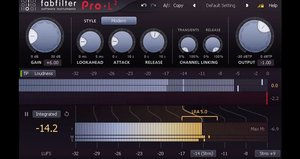Spotify adopting LUFS (-14LUFS specifically)
- Anti Logic Mastering
- Dec 8, 2020
- 1 min read
!NERD ALERT!
This is not one of those momentarily seemingly popular Spotify rants, but some technical insight. Spotify is going to adopt the ITU 1770 standard soon, converting their Loudness Normalization away from the Replay Gain method, welcoming a more accurately measured -14LUFS target.
Loudness Normalization is an attempt to provide good loudness consistency of a music catalog and is therefore used by streaming services. Replay Gain wasn't "simply" measuring LUFS and therefore Spotify could never make super accurate predictions as to how loud a mastered song would turn out exactly after "Normalization". Much unlike many of their competitors, which are using a LUFS measurement. Well now they can do it much more accurately and will provide a more loudness-consistent music catalog that is going to in line with ITU 1770.
Adopting the ITU 1770 standard, Spotify says their new loudness goal is going to be -14LUFS, which is in line with Tidal, Amazon and YouTube. Ian Shepherd (Mastering Engineer) reported this on Meterplugs blog and Spotify says in their FAQs they're "starting soon".
Spotify is still amongst the very few platforms that actually turn up gain, in order to bring up the loudness when necessary. On Spotify this invokes the use of a limiting algorithm, with unspecified settings and sonic characteristics. Unpredictable limiting? NOT GREAT!
Be sure you avoid that, avoid having too quiet a master, and don't forget:
Know the loudness regulations but master music to how you love it and how it sounds great. Let streaming platforms deal with their own restrictions.Until next time
Yours truly
Author: Robert Hundt // Date: December 8th, 2020





Comments